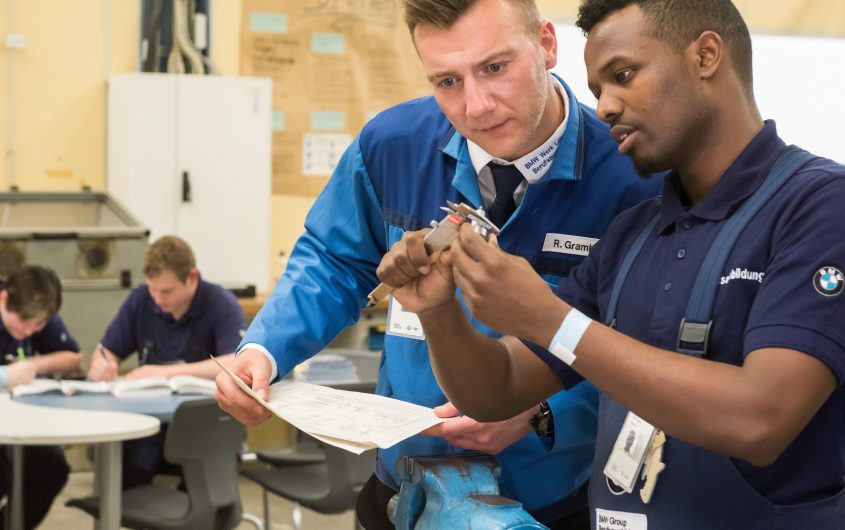
Workforce Training in the U.S. and Europe
Automation, digitalization, and demographic shifts are changing the demands of the workforce in the United States and Europe. Lessons can be learned from other countries’ experience in developing multiple career pathways for their citizens despite national differences. AGI’s projects on workforce examine best practices for educating workers in a twenty-first century economy and how to build more inclusive work-based learning systems and their role in boosting employment and economic growth.
Project Description
A leader in vocational training and apprenticeship programs, Germany offers many concrete examples of successful workforce training policies. These are policies aimed at adapting the workforce for the demands of twenty-first century manufacturing and technology, at providing economic growth on a national level, and at using employment and training opportunities to integration minorities into society. German companies operating in the United States have implemented many German-style vocational programs, to great success.
Grants from the Robert Bosch Foundation and the Alcoa Foundation enabled AGI to study apprenticeship models in 2014-2015 as part of a national effort to develop and expand apprenticeship in the United States called the Advanced Manufacturing Partnership 2.0. It identified best practices among employers, educators, and government that prepare the current and future workforce for careers in manufacturing and other advanced industries. The research was conducted with the participation of the foundations in France, Germany, Hungary, the United Kingdom, and the United States. The grant from Alcoa Foundation supported local research, including the participation of the AGI network of experts. The results were published in spring 2015 and were based on expertise from each country’s apprenticeship programs, including the policy and programmatic challenges and opportunities; and inputs from those in industry, academia, the nonprofit sector, and government. The research sought to create a global “knowledge” network focused on apprenticeships in manufacturing, and informed an AGI report that profiled each country’s apprenticeships.
Further support from the Robert Bosch Foundation and the Arconic Foundation focused on Integrating Young Minorities into the Workforce. The Southeast region of the United States has a strong manufacturing industry and a growing immigrant population. The region is also home to about 300 German companies that have brought their traditions of apprenticeship and training programs with them. Charlotte, North Carolina’s largest city, has become an emerging immigrant gateway, with its foreign-born population having almost doubled between 2000 and 2010. In 2013, Charlotte became a “welcoming city” and it now has an Immigrant Integration Task Force. The city and region are at the forefront of education, training, and integrating its immigrant population. Our aim for these site visits was to bring together officials and practitioners from the United States and Germany to examine the challenges and opportunities of integrating migrants into the workforce and how these challenges and opportunities are handled in the public and private sectors. The site visits emphasized the work of local and regional actors in areas of major economic migration and industry.
For questions about this project, please contact Susanne Dieper, Director of Programs and Grants, at sdieper@aicgs.org.
This program is generously funded by the Robert Bosch Foundation, the Alcoa Foundation, and the Arconic Foundation. Support for fellows’ projects was provided by the German Academic Exchange Service.



